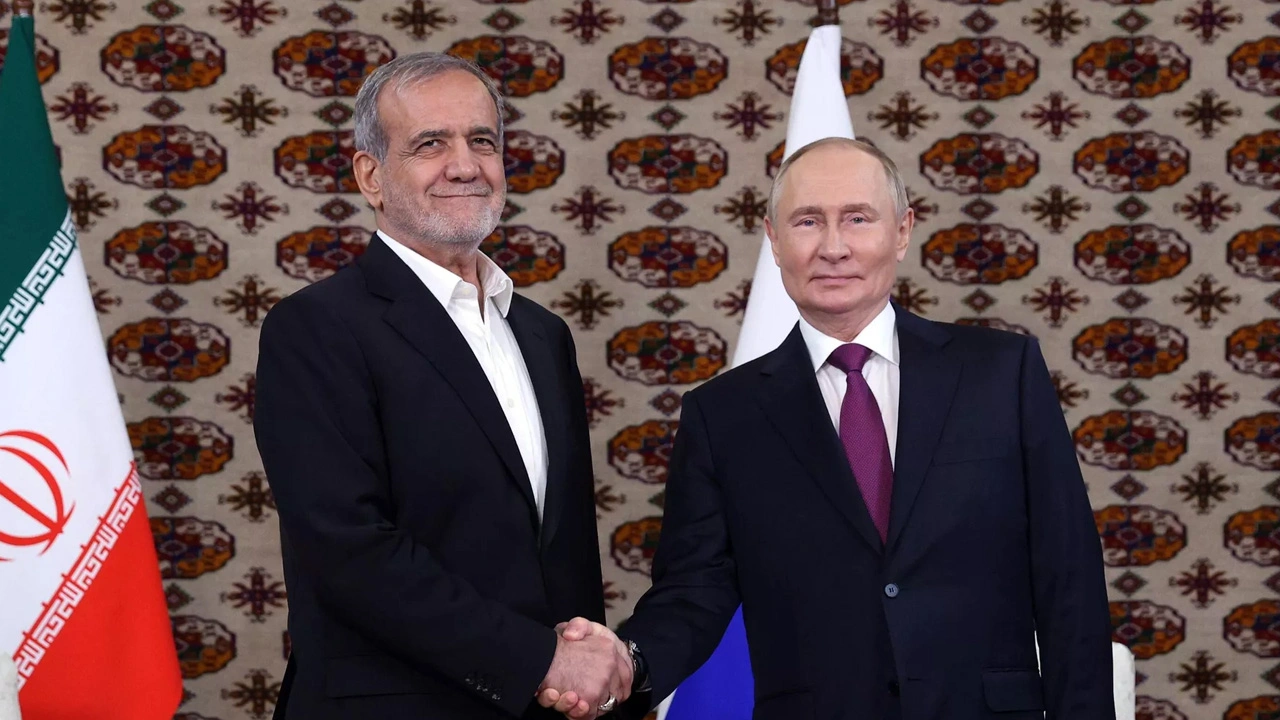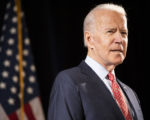Russian President Vladimir Putin met with his Iranian counterpart, Masoud Pezeshkian, for the first time at a regional summit in Turkmenistan’s capital, Ashgabat. This meeting underscored the growing strategic partnership between the two nations at a critical time of heightened tensions in the Middle East. Both Russia and Iran face extensive sanctions, and their deepening cooperation, particularly in the military sphere, has become more pronounced since Russia’s invasion of Ukraine in February 2022.
Putin highlighted the close alignment of the two countries’ worldviews during the meeting, stating, “We are actively working together in the international arena and our assessments of events taking place in the world are often very close.” This marks a notable strengthening of their alliance, driven largely by their shared experience of global isolation and sanctions, as well as their increasing reliance on each other.
Strengthening Military Cooperation
Iran has played a key role in bolstering Russia’s military capabilities. Since the onset of the Ukraine war, Iran has supplied Russia with thousands of Shahed attack drones, and reports from U.S. officials suggest Iran has even built a drone factory in Russia. In a significant escalation of support, Tehran has also transferred short-range ballistic missiles to Moscow, according to a CNN report from September 2023.
This cooperation is part of a broader de facto military alliance between the two countries, which also extends to their joint support of Syrian President Bashar al-Assad’s regime. The partnership is further solidified by mutual interests in evading international sanctions, with analysts suggesting that Russia sees Iran as a key example of how to maneuver around these economic constraints.
Iran’s New Leadership and Its Role in Expanding Ties
The meeting comes amid a transition in Iran’s leadership, following the election of reformist Masoud Pezeshkian, who took office after the sudden death of President Ebrahim Raisi in a helicopter crash. Pezeshkian has been vocal about his desire to enhance relations with Russia, viewing the partnership as a means to resist the “cruel” sanctions imposed by the West. During a meeting with Russian Prime Minister Mikhail Mishustin last week, Pezeshkian stressed the importance of speeding up joint projects between the two nations, while Russia expressed interest in diversifying its trade with Iran.
Both countries are expected to further solidify their cooperation during the upcoming BRICS summit in Russia, where they are anticipated to sign a comprehensive strategic agreement. Iran formally joined the BRICS group earlier this year, signaling its commitment to deepening relations with major emerging economies and countering Western influence.
Middle East Conflicts and Arms Transfers
Amid these diplomatic moves, tensions in the Middle East continue to simmer, particularly after Tehran’s largest-ever missile attack, which has set the stage for a potential Israeli response. Analysts have pointed out that while the Iran-Russia relationship has grown stronger, conflicts involving Iran-backed proxies in the Middle East may not necessarily strengthen the alliance. Some argue that Russia could benefit from these conflicts, as they divert international attention away from the war in Ukraine.
Furthermore, reports have surfaced of Russian involvement in arms transfers to the Iran-backed Houthis in Yemen. Allegations have emerged that Viktor Bout, a Russian arms dealer who was exchanged in a prisoner swap for American basketball player Brittney Griner, has brokered a deal to supply $10 million worth of automatic weapons to the Houthis. Bout has denied the claims, but such developments highlight the complex entanglement of arms trades and proxy conflicts that shape the Iran-Russia relationship.
Potential Limitations and Challenges
While Moscow and Tehran have found common ground in their opposition to Western sanctions and their mutual military interests, experts caution that the relationship is not without challenges. According to Aniseh Bassiri Tabrizi, a senior analyst at Chatham House, “Russia is very much focusing on what’s going on in Ukraine,” which may limit the extent to which Moscow can provide technical and military support to Iran. She also noted that while the partnership is expected to continue growing, underlying tensions and misalignments between the two nations will likely persist.
Russia’s primary focus remains its war in Ukraine, and it may not have the resources to stretch its military capabilities much further in support of Iran. Nonetheless, the relationship is set to grow as both countries see strategic benefits in their partnership, particularly in circumventing sanctions and leveraging each other’s military expertise.
As Putin and Pezeshkian continue to emphasize their close ties, the broader geopolitical consequences of their cooperation will be closely watched, particularly in light of the ongoing conflicts in Ukraine and the Middle East.


















